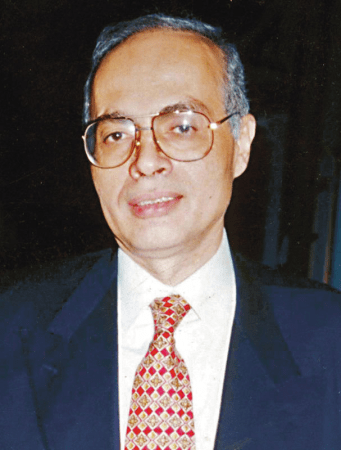When a man falls to his death from a balcony, some cynics wonder: was he pushed? When that man happens to be the most infamous spy in the history of the modern Middle East, it’s the first question on everyone’s lips.
On 27 June the body of Ashraf Marwan was found on the pavement below his flat in Carlton House Terrace, one of London’s most expensive streets, which overlooks the Mall and St James’s Park. Marwan was an astonishingly well-connected Egyptian, the son-in-law of the late Gamal Abdel Nasser, the Egyptian president and hero of pan-Arabism, and the consigliere of Nasser’s successor, Anwar Sadat. After Sadat’s assassination in 1981 he moved to London where he quickly established himself as a key player in the business world, in particular as an ally of Tiny Rowland in his bitter struggle with Mohamed Al Fayed over the ownership of Harrods. He was thought to have a personal fortune of £100 million.
But Marwan’s business dealings are only a small part of his story. The real drama came in October 1973 when he warned Israel that Egypt and Syria might attack, just hours before the Yom Kippur war began. Marwan was a Mossad agent, but he may also have been an Egyptian double agent. And the great unsolved mystery of Marwan’s life and, perhaps, the key to understanding his death is whether, when he warned Israel, he was acting as a Mossad agent or to preserve his credibility as a double agent, thinking that he was leaving Israel too little time to prepare for war.
Marwan had volunteered to work for Mossad in 1969 and the then president’s son-in-law became one of the agency’s most important spies. After Sadat succeeded Nasser Marwan became an even more pivotal figure in Egypt, but he continued to help Mossad.









Comments
Join the debate for just £1 a month
Be part of the conversation with other Spectator readers by getting your first three months for £3.
UNLOCK ACCESS Just £1 a monthAlready a subscriber? Log in